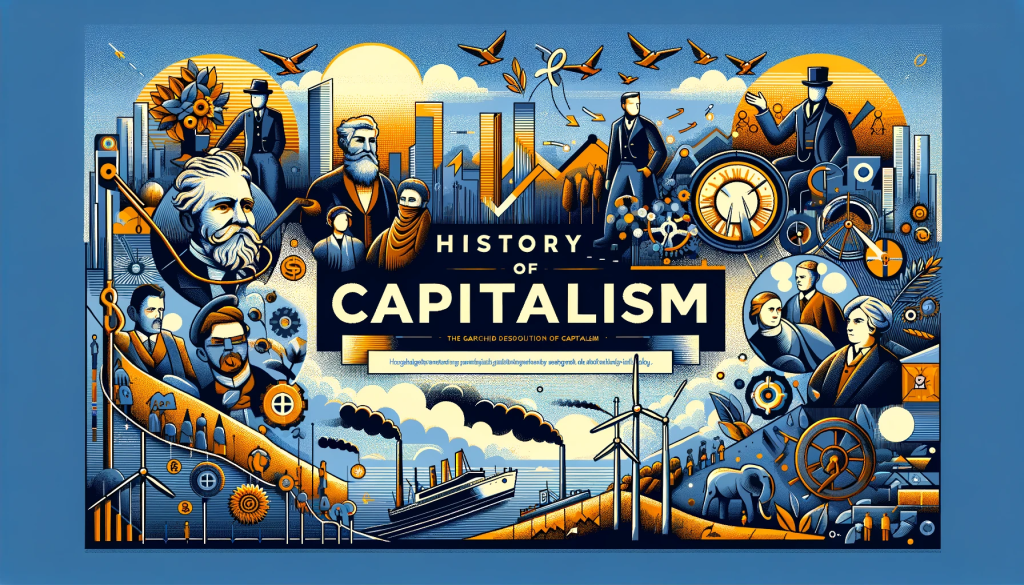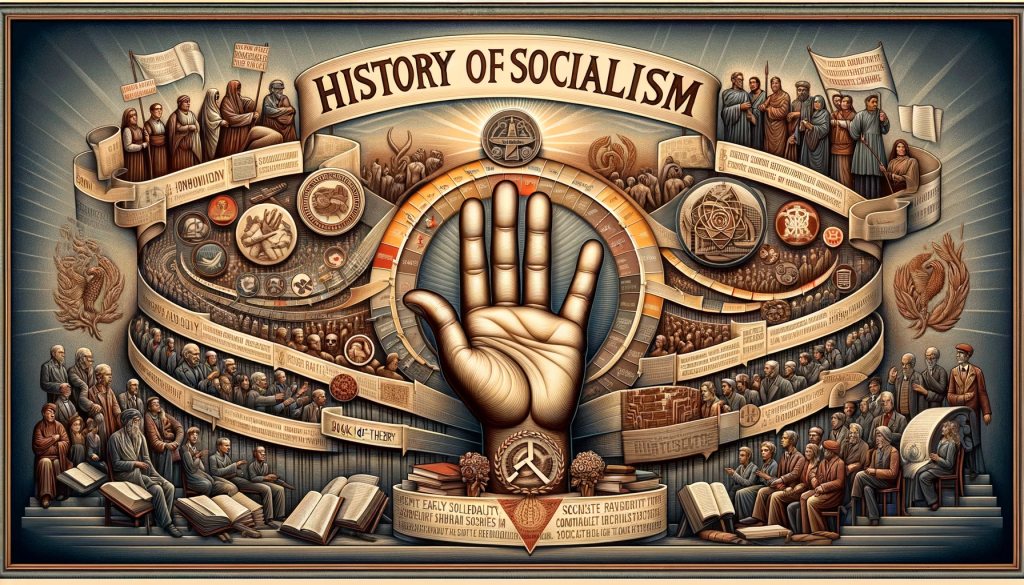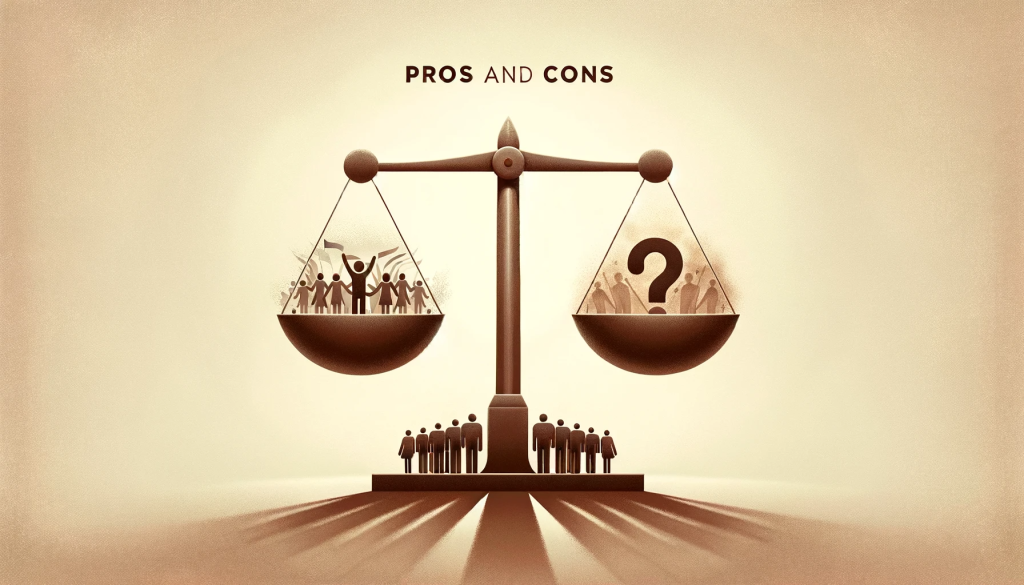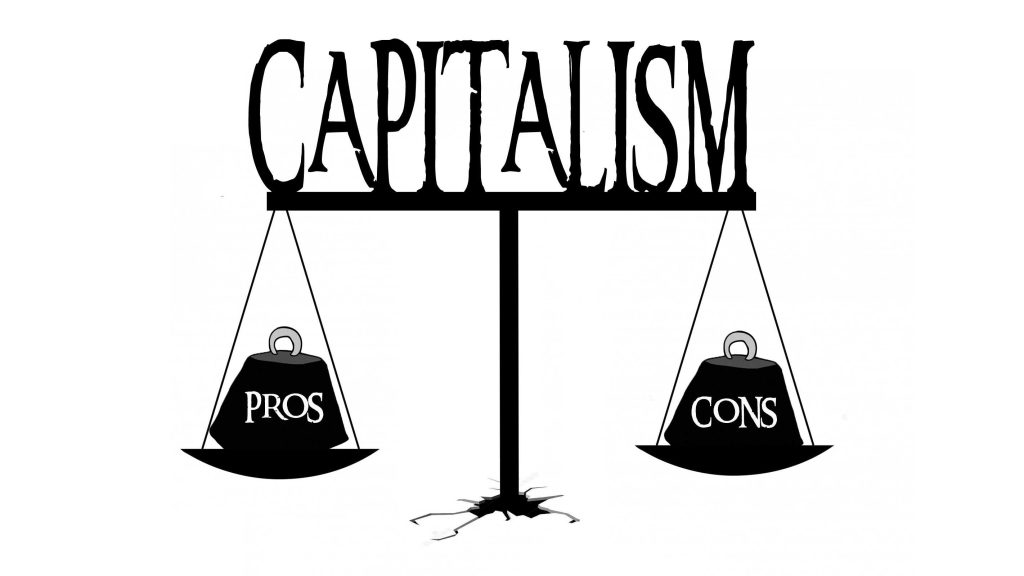
Socialism and Capitalism have different perspectives on social and economic issues, but these systems delve into social aspects that help shape societies. Both Capitalism and Socialism discuss social and political structures that work to create a system to ensure economic and social profit. However, Capitalism focuses on financial gain, while Socialism works towards a system that will ensure socioeconomic equality.
Capitalism
Capitalism is a political and economic system that controls the means of production in a country. It is a financial system that is run by businesses rather than a government. Although it focuses on the economic system, it does have political dimensions. In Capitalism, businesses or private bodies own capital means. Because of feudalism in the Western world, Capitalism is dominant in these countries. These countries’ economic planning occurs through competitive, voluntary and decentralized decisions rather than centralized political decisions. Under Capitalism, the creation of goods and services is determined by supply and demand in a market economy rather than a command economy.
The free market, also known as the laissez-faire market, is the purest form of Capitalism. Capitalists (business owners) organize the means of production and have control over production and services. They determine what to produce, where to invest and at what prices to exchange goods. They hire workers in return for wages to operate the production, and the profit belongs to the capitalists. A mixed capitalist system, an economic system that combines government interventions and Capitalism, is practised in most countries. These countries live by the motivation for profit.
Find out more about free market capitalism and mixed Capitalism at: https://en.wikipedia.org/wiki/Capitalism
Socialism
Socialism is an economic system where resources are distributed equally among citizens, and the government owns the means of production. In socialism, private owners and investors do not own the distribution of resources and do not control the production and distribution of goods and services. They do not have the power to determine what to produce and at what prices to exchange goods. The principles of shared ownership and cooperation laid the foundation of this economic system. An elected government controls the means of production (industries and businesses) in various socialist economies.
In socialism, based on how much a citizen has contributed to good production, a collective production of the economy is shared among each person. Human needs and economic demands are satisfied through production under socialism. It does not aim to make profits and accumulate capital while disregarding equality. The goal of socialism is equal resource distribution and ensuring equality in a society. To know more about socialist systems and interventions related to social equality, visit: https://en.wikipedia.org/wiki/Socialism
History of capitalism

Capitalism as a system begin in the 16th and 17th centuries. Still, there were precursors to capitalist organizations in ancient times, and in the later Middle Ages, there were flourishing areas of capitalism in Europe. During the 17th and 18th centuries, the English cloth industry grew dramatically, and since then, the development of capitalism has been directed. Capital accumulation was used to increase productive capacity rather than to finance economically unproductive enterprises, which set capitalism apart from earlier systems.
In England, industrialization replaced trade because the primary focus of capitalist growth in the 18th century was industry. During the Industrial Revolution, the steady capital accumulation of earlier centuries was applied to the real-world application of technological knowledge. The Scottish economist and philosopher Adam Smith articulated the philosophy of classical capitalism in the Wealth of Nations (published in 1776). He argued that government intervention in commerce is not effective. He also argued that the market forces are self-regulating and recommended letting market forces make economic decisions. Smith’s principles were implemented more often after the Napoleonic Wars and French Revolution, which eliminated the last traces of feudalism.
Moreover, the market economy was increasing after the industrial development. However, the potential of the emerging market economy was increasingly perceived to be hindered by the trade restrictions of mercantilism. To support local industries, protectionist measures like tariffs, quotas, and subsidies were frequently used under mercantilist policies. In addition, it was assumed by mercantilist policies that trade was a zero-sum game, meaning a country could succeed at the expense of others. These mercantilist assumptions were challenged by the rise of capitalism. Economic ideology gradually moved toward free commerce and open competition as a result of capitalism concepts.
In the 19th century, the development of the factory systems and industrial capitalism created the idea of industrial workers. Karl Marx’s revolutionary thought was inspired by the enormous new class of industrial workers. These people typically had terrible living and working circumstances. However, Marx’s prediction that capitalism would inevitably collapse in a class conflict turned out to be wrong. By the end of the 19th century, industry grew in the Western world, and capitalism became the dominant economic system. During this time, due to industrial growth, capitalist civilizations experienced extraordinary prosperity and economic expansion.
However, capitalist societies also experienced extreme socio-economic disparities. These socio-economic disparities led to the emergence of a working class. This class had unsafe working conditions, longer working hours, and little pay. The wealthy elite controlled the opportunities and resources. Limited access to basic needs was provided, which led to social inequalities in capitalist societies. Due to social and political dissatisfaction brought on by these disparities, trade unionism and political groups supporting social justice and labour rights became more popular.
History of socialism

Since antiquity, socialist models and social ideas of equality have existed. The works of intellectuals like Charles Fourier and Robert Owen in the late 1700s have significantly contributed to the development of socialism. However, it wasn’t until the middle of the 19th century that socialism became prominent as a political and economic movement. Social issues such as growing inequality between the small group of wealthy business owners and the poor workers were caused by industrial capitalism. In response to these social issues, the economic and political model of socialism gained prominence. As a result, socialist parties formed in the 19th century in the United States and Europe.
During the 18th century, the period of revolutionary and Enlightenment movements, socialism originated. Modern socialism began in the 19th century in response to capitalism created by the Industrial Revolution. Socialism promoted collectivism rather than individualism (promoted by capitalism). It is crucial to understand that socialism was developed from the capitalist system. Socialism aimed to address societal issues such as unequal resource and opportunity distribution. This system also influenced public policies during that period and advocated equal distribution of resources. The government owned the means of production and controlled the prices of the services and goods.
In the 1820s and 1830s, socialist movements were developed by some groups, including Owenites and Fourierists. During this time, socialism developed social experiments and theories mostly connected to French and British intellectuals. The leading proponents of what was eventually called utopian socialism were Saint-Simon, Fourier, and Owens. The ideas for the reorganization of society along collectivist lines were outlined in their works. However, the opinions of the utopian socialist thinkers were different. Some favoured community property ownership and democracy; some did not want to embrace democratic ideals or abolish private property.
Saint-Simon aimed to transform society through a large-scale program that allowed industrialists and specialists to take charge, while Owen and Fourier aimed to establish small-scale, utopian communities as the cornerstones of socialism. Saint-Simon, a co-founder of positivism with his assistant Auguste Comte, aimed to bring political science up to the same standard of empiricism as the physical sciences. He abandoned economic liberalism and worked towards a system which would unite society and industry into a single and unified organization rather than the conventional state. All individuals would have equal resources and opportunities under a meritocratic system. In addition, this new society would ignore unequal resource and opportunity distribution and class distinctions based on wealth and nobility.
Moreover, Fourier, an earlier utopian socialist, believed that labour, capital, and talent were the factors that made economic output. According to him, all these factors are crucial for the production. Also, these factors need to be compensated for the general prosperity of the organized association. In addition, Robert Owen, another utopian socialist, presented the idea that society should break down into local collectives. Owen worked in the village of New Lanark and transformed its society by bringing opportunities and different ideas to the community. The community received free health care, inexpensive food, respectable housing, evening classes and schools. He also helped abolish child labour and physical punishment.
Other philosophers who advocated socialism and worked to abolish feudal property were Karl Marx and Friedrich Engels. Marx and Engels were inspired by German philosopher Georg Wilhelm Friedrich Hegel and British political economics, including David Ricardo and Adam Smith, and their socialist or communist concepts that originated in the French Revolution. Both these philosophers created a body of ideas that is commonly called Marxism. This theory included a political and philosophical concept, a criticism of political economics, and a theory of history known as historical materialism.
The Communist Manifesto, published in 1848 and written by Engels and Marx, presented a criticism of capitalism. This pamphlet criticizes the bourgeoisie and advocates their upheaval by the working class, expecting to create societal equality. They predicted the class conflict that may arise from the capitalist. He believes that capitalism is alienating and exploitative by its very nature. He argued that there were uneven social ties between proletariat workers and bourgeoisie owners since workers were not paid the total value of their labour while owners gained profit. He predicted that class conflict would intensify due to contradictions and internal tensions of capitalism, leading to oppressed workers’ exploitation. The Communist Manifesto concludes by stating that the “working class has nothing to lose but their shackles.”
Through political parties, activist groups, labour unions, and worker cooperatives, socialist and Marxist ideologies were disseminated throughout the working classes. The establishment of child labour regulations, the freedom to create a partnership, eight-hour workdays, and other progressive changes were among the significant early victories. Outside of Europe, peasants and rural communities, people endured terrible inequality and poverty until socialist and even communist revolutions took place in nations like Cuba, China, and Russia.
Differences between Socialism and Capitalism
Socialism and Capitalism are two different systems with different goals. When means of production such as industries and organizations are owned by private bodies, and they aim to pursue their economic interests, then it is called Capitalism. Whereas a system where means of production are owned and controlled by public bodies rather than private forms and advocates collective ownership is called Socialism.
Capitalism emerged in the 17th and 18th centuries during the Industrial Revolution. This economic system was introduced when the Industrial Revolution began, and society depended on industries for their living. During the 17th century, the Industrial Revolution focused on free markets and capital accumulation to enhance productivity. In Capitalism, private businesses control industries and other private properties and hire workers to carry out their work. Private businesses have the freedom to hire and control means of production. They are free to set prices for goods and services, and by the supply and demand market, their prices are determined.
On the other hand, Socialism emerged during the 19th and 20th centuries. This economic system emerged as a response to the industrial revolution that created the concept of Capitalism. Socialism originated to criticize the capitalists’ ideas and to address inequalities in society that were caused by Capitalism. Socialism deals with the issues related to the unequal distribution of opportunities and resources in a community. Worker’s exploitation, collective ownership and wealth accumulation by Private individuals are addressed in Socialism. It works for economic equality and promotes equal distribution of resources and opportunities among people based on their needs.
In addition, government and private cooperatives are included in Socialism, and the prices of the goods and services are set by corporations and the government. Unlike Capitalism, Socialism ensures equal resource distribution based on needs. Capitalism does not believe in the equal distribution of resources. Socialism abolishes economic inequalities, while Capitalism may enhance economic disparities as resources and opportunities are unequal.
Similarities between Socialism and Capitalism
Although capitalism and socialism are two economic systems, they have some similarities. Socialism aims to discuss the production of goods and services and the decision of prices of the goods and services. It also focuses on resource allocation and distribution. Similarly, capitalism also focuses on economic systems such as the production of goods and services and resource allocation and distribution. In addition, capitalism and socialism recognize the importance of delivering goods and services. The services that benefit the people are focused on both economic systems.
Moreover, capitalism and socialism focus on asset ownership and its benefits. Both economic systems favour activities that enhance economic benefits. Their emphasis is on human labour, and in this way, they both are labor-centric. Capitalists contend that market competition should control labour distribution, whereas socialists believe that the government should do this. In addition, both systems are based on services and goods production and their management and ownership. According to both economic systems, the economy’s standard of life can be enhanced by increasing the production of goods.
Pros and Cons of Socialism

Socialism may sound like a fair and strong economic system, but it may hold some drawbacks. Below are the pros and cons of Socialism.
Pros of Socialism
- Socialism encourages the establishment of a welfare state. Poverty can be reduced within a welfare state as it provides the unemployed or sick with a minimum basic income. When basic living standards are provided to those in need, a state’s poverty can be reduced.
- A cohesive society is developed when it has an equal distribution of opportunities and resources. A community is frustrated and resented when people live in a very unequal society.
- The marginal utility of income is diminished.
- Delivering free primary healthcare to those who cannot afford to pay private doctors can increase their living standards.
Cons of Socialism
- Incentives to work and invest are deterred because of the higher taxes and strong government regulation of business. It may also lower economic development and growth.
- A generous welfare state can create a disincentive to get a job. It may also reduce individual effort and the labour force.
- Labour market antagonism is caused by powerful collaborations.
- Doctors usually face financial constraints in the publically-funded healthcare system.
- Inefficient allocation of resources can lead to government failure. It is successful in labour markets and in regulating firms.
Pros and Cons of Capitalism

Capitalism is characterized by private individuals that owned means of production. This economic system has pros and cons discussed below.
Pros of Capitalism
- Individualism is one of the primary advantages of capitalism
- Businesses and individuals are free to control the market, leading to market development.
- Competition and innovation is enhanced
- Accumulation of capital can benefit wider society
Cons of Capitalism
- Capitalism causes socioeconomic inequality
- Monopoly power in labour markets and in product is gained by private firms
- Externalities are usually ignored by free market
- Inefficient resource allocation
FAQ's
Capitalism is an economic system that controls the means of production and focuses on economic benefits. It supports financial growth and the profits belong to private individuals.
Socialism is an economic system that focuses on equally distribution of resources among citizens. In socialism, the government owns the means of production.
Capitalism has both positive and negative impacts on economy. It includes free markets that leads to market development. However, it is also believed that capitalism exploits workers.
Socialism and capitalism focuses on the production of goods and services and resource allocation and distribution. These both systems are labor-centric, meaning their emphasis is on human labour.
Since capitalism includes individualism, there is minimal governmental control over business. The freedom of control, acknowledgement of individual’s value and efforts make it successful.
Newsletter
Latest Post

Introduction Global history enduring issues are the issues that occur across time in various societies. These multifaceted challenges have significantly

Socialism and Capitalism have different perspectives on social and economic issues, but these systems delve into social aspects that help
